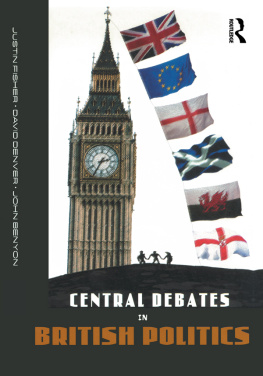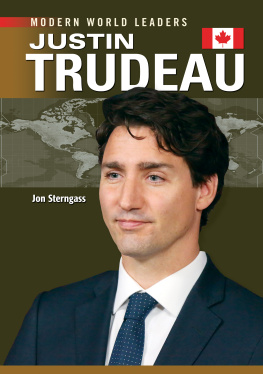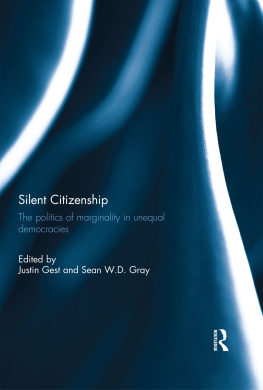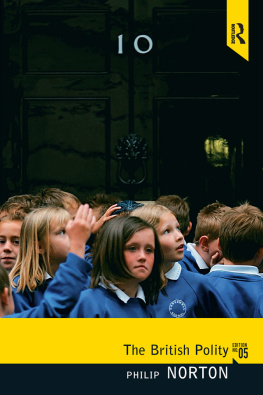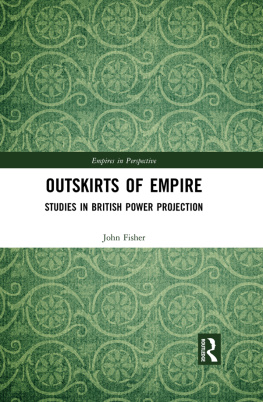First published 2003 by Pearson Education Limited
Published 2014 by Routledge
2 Park Square, Milton Park, Abingdon, Oxon OX14 4RN
711 Third Avenue, New York, NY 10017, USA
Routledge is an imprint of the Taylor & Francis Group, an informa business
Copyright 2003, Taylor & Francis.
The rights of Justin Fisher, David Denver and John Benyon to be identified as the authors of this work have been asserted by them in accordance with the Copyright, Designs and Patents Act 1988.
All rights reserved. No part of this book may be reprinted or reproduced or utilised in any form or by any electronic, mechanical, or other means, now known or hereafter invented, including photocopying and recording, or in any information storage or retrieval system, without permission in writing from the publishers.
Notices
Knowledge and best practice in this field are constantly changing. As new research and experience broaden our understanding, changes in research methods, professional practices, or medical treatment may become necessary.
Practitioners and researchers must always rely on their own experience and knowledge in evaluating and using any information, methods, compounds, or experiments described herein. In using such information or methods they should be mindful of their own safety and the safety of others, including parties for whom they have a professional responsibility.
To the fullest extent of the law, neither the Publisher nor the authors, contributors, or editors, assume any liability for any injury and/or damage to persons or property as a matter of products liability, negligence or otherwise, or from any use or operation of any methods, products, instructions, or ideas contained in the material herein.
ISBN 13: 978-0-582-43727-2 (pbk)
British Library Cataloguing-in-Publicalion Data
A catalogue record for this book is available from the British Library
Library of Congress Cataloging-in-Pubiication Data
Central debates in British politics / edited by justin Fisher, David Denver, and john Benyon.
p. cm.
Includes bibliographical references.
ISBN 0-582-43727-X (pbk.)
1. Great BritainPolitics and government1997, I. Fisher, lustin. II. Denver, D. T. III.
Benyon, lohn.
2002066059
Typeset in 9.5/12pt Giovanni Book by 35
Textbooks dealing with British government and politics now seem to appear (or be published in revised editions) with increasing frequency. There is probably a simple explanation for this in the last few decades there have been significant changes in the international context of UK politics, and in the system of government and the terms of political debate. At the start of the twenty- first century, change continues apace and traditional accounts of the British political system current in, say, the 1970s, are now completely out of date.
Clearly, one major change concerns the UKs relationship with the European Union, as the country has become increasingly entwined in the institutions, policies and practices of the EU. Looking beyond Europe, the forces created by the globalisation of the international economy have increasingly important effects on the ability of British governments to pursue independent economic policies and thus may be said to restrict sovereignty. In domestic terms, there has been much constitutional change since 1997, with the prospect of more to come. For example, following referendums (themselves constitutional novelties), there has been a substantial devolution of power to Scotland, Wales and Northern Ireland. Scotland now has its first parliament since 1707 and Wales its first ever national Assembly. In London (again following a referendum) there is now, for the first time ever in the UK, a directly-elected executive the mayor. In Westminster itself, the composition of the House of Lords has been radically altered and further changes are in the pipeline. New electoral systems have been introduced for many non-Westminster elections, and there is the possibility of change for elections to the House of Commons as well. Recent years have also seen the most radical overhaul in electoral law since the extension of the franchise to all adults and the incorporation of the European Convention on Human Rights into British law.
Change has also occurred in political representation in the United Kingdom. There has been growing concern about an apparent disengagement with conventional politics. This has led to questions about the role and effectiveness of political parties, about how democratic they are internally and whether other institutions, such as pressure groups and the mass media, are now viable alternative vehicles for political representation. This has led to questions about what it means to be a citizen and about the redress of grievances. There are also questions about new forms of regulation. Both politics and society are subject to increasing regulation with the courts and judiciary, and related quasi-judicial bodies and quangos, having increasingly important roles to play.
These changes pose questions about how Britain is, and should be, governed and the contributions to this book focus on the debates around these issues. Many of the trends and developments are, of course, contentious there is little consensus on them among politicians, academics working in the field or people in general and such disagreement is intrinsic to political discussion. The title of the book highlights this it is about topics on which there is much scope for debate and we hope that the various chapters will stimulate debates among students of politics. To this end, we have assembled a group of authors who are experts in their respective fields and who explain the various arguments surrounding their particular topic. We have asked the contributors to include four dimensions to their chapters the background to the debate, associated theoretical concerns, summaries of the central issues and, in the light of these previous sections, an update. By structuring chapters in this way, we hope that all will stimulate lively debate about both the empirical material and the theoretical concerns. New issues will inevitably arise after publication, but we hope that the chapters will continue to provide a solid foundation on which the changing debates can be based. New issues and developing debates will, we hope, be included in subsequent editions of the book.
The book is organised into six parts. In the introduction, we set out the context for the book. These chapters detail the changing social, economic and political contexts of contemporary British politics, as well as broad theoretical questions which are relevant to the study of British politics, or indeed the politics of any other country. One of the aims of the book is to integrate theoretical concerns more closely with the study of British politics and we hope that the introductory chapters, as well as the theoretical sections in each chapter, provide material which will encourage students to think more generally about the issues raised.

